Table of Contents

Government is, at least for the moment, a reality. Thus, regardless of one’s political philosophy, a certain amount of realism is required to understand how to deal with this fact of life.
Realism when viewing government power can take the form of both pragmatism and cynicism. We believe that both have their place in the world — understanding that the world is the way that it is while also acknowledging that some of the worst actors in the world are using the levers of power combined with a genuine and widespread concern for the common welfare of men to amass power for its own sake.
In its purest form, the role of government is imperialism. How the government acts abroad is how it will soon act at home. It is unbound by many of the strictures that restrain it at home. We can easily see what the state has planned for us when we look at what it is doing abroad.
Political science is a very grim topic as many of these quotes will attest. But we believe, despite their sometimes unpleasant nature, that they will help you to gain a better understanding of both how the government works but also how you feel about it.
Quotes About Expansion of State Power
Edward R. Murrow
“Anyone who isn’t confused doesn’t really understand the situation.”
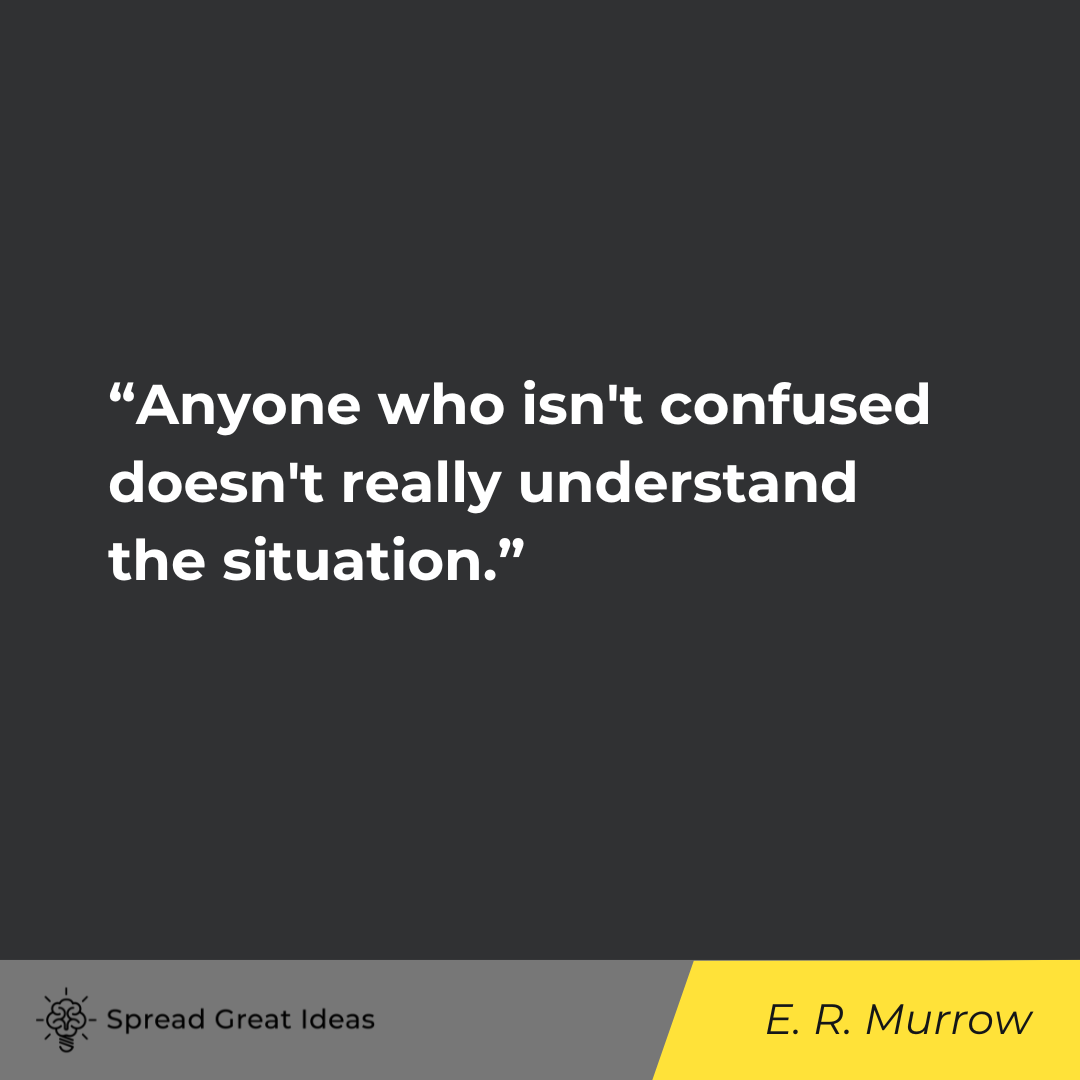
Ronald Reagan
“No government ever voluntarily reduces itself in size. A government bureau is the nearest thing to eternal life we will ever see on this earth.”
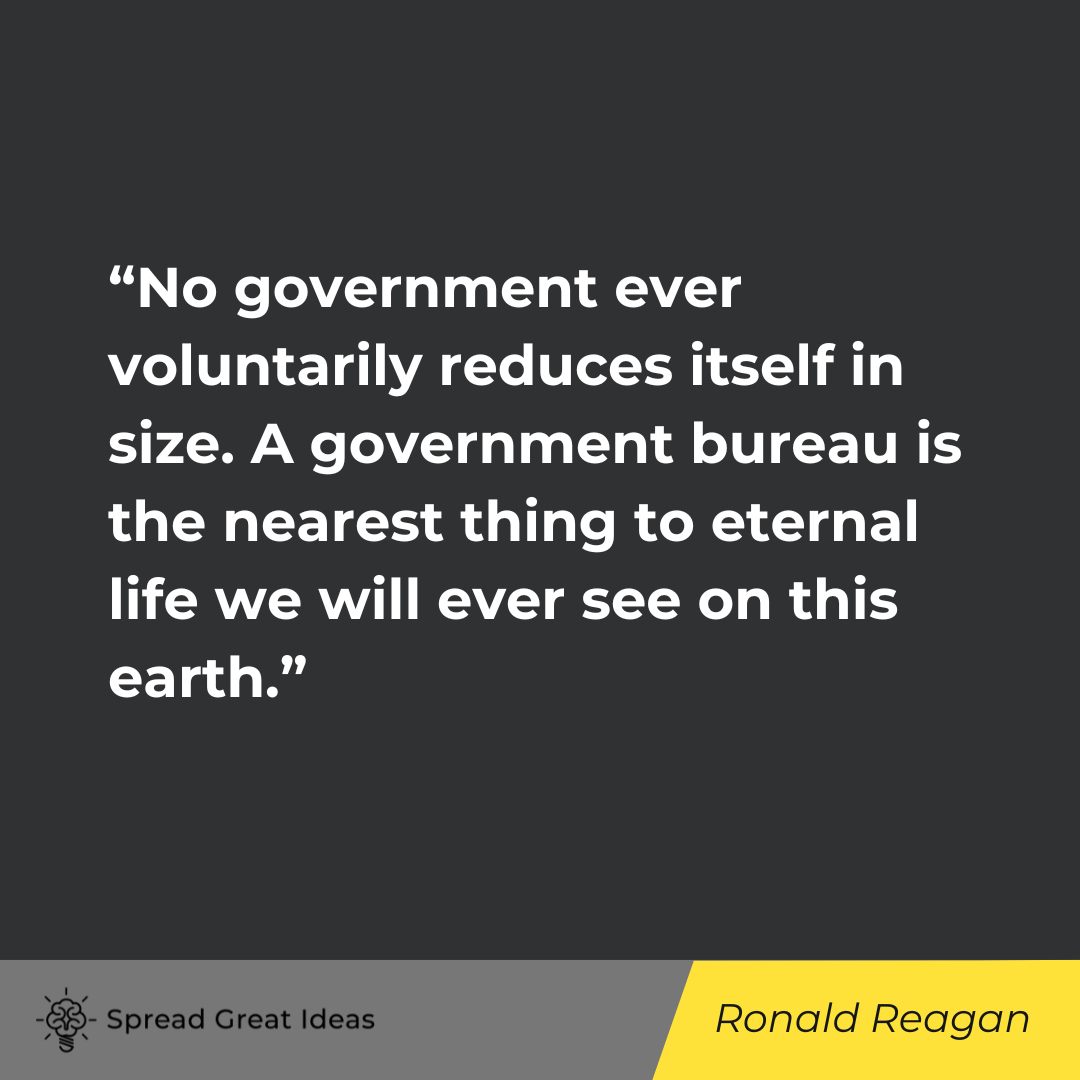
“Government is like a baby: An alimentary canal with a big appetite at one end and no sense of responsibility at the other.”
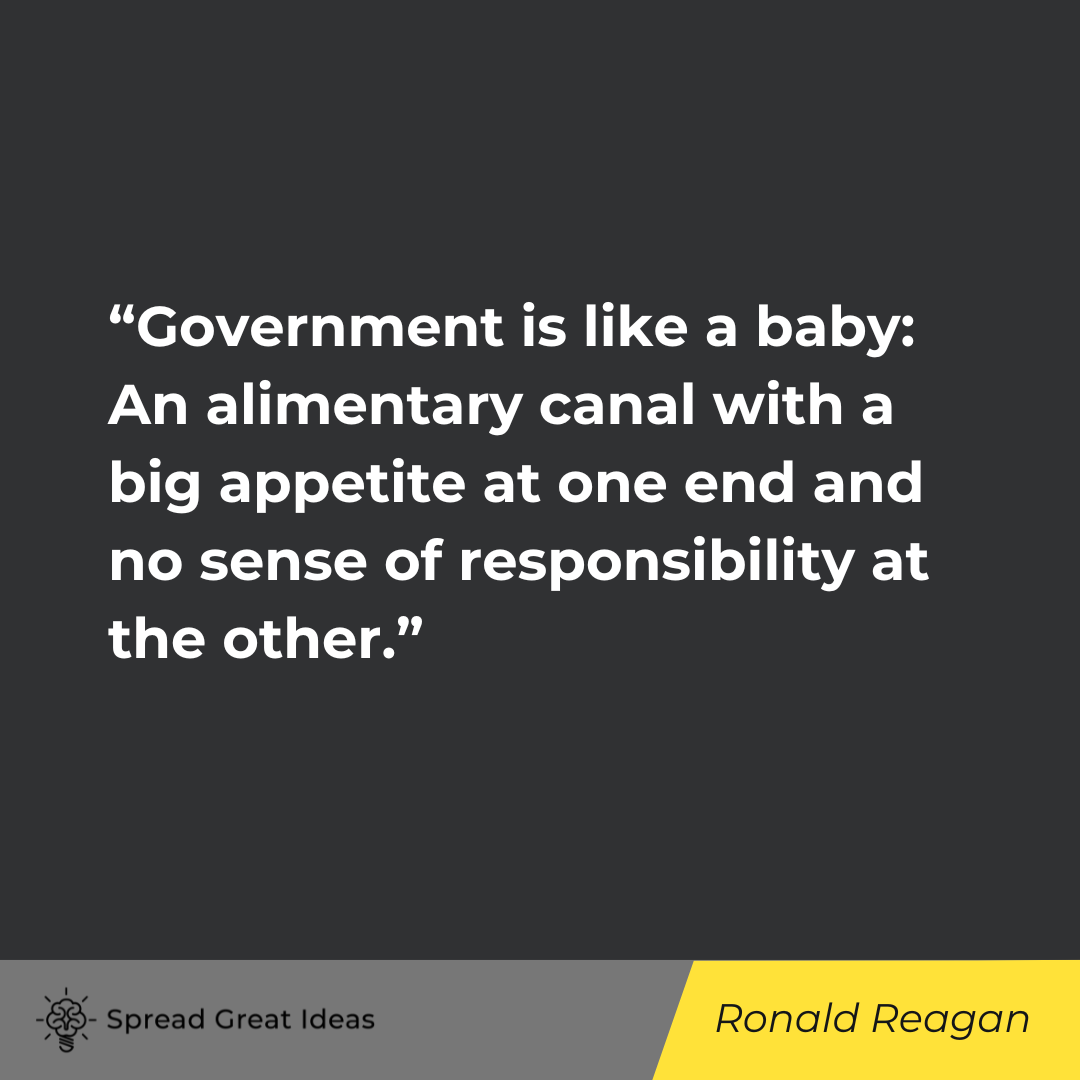
Dwight D. Eisenhower
“We will bankrupt ourselves in the vain search for absolute security.”

Alfred Adler
“Our modern states are preparing for war without even knowing the future enemy.”
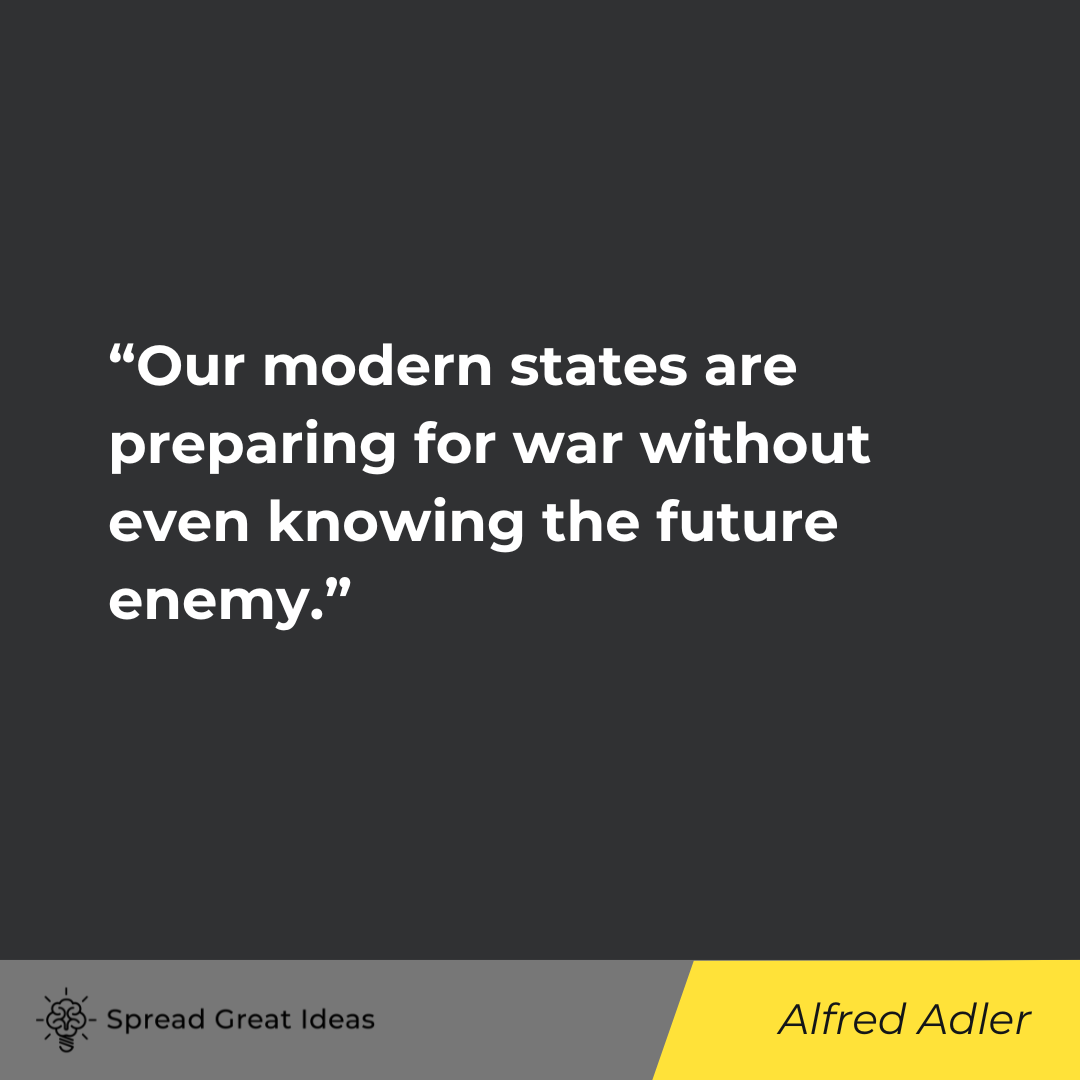
James Madison
“The means of defence against foreign danger, have been always the instruments of tyranny at home.”

Frank Chodorov
“The State acquires power… and because of its insatiable lust for power it is incapable of giving up any of it. The State never abdicates.”
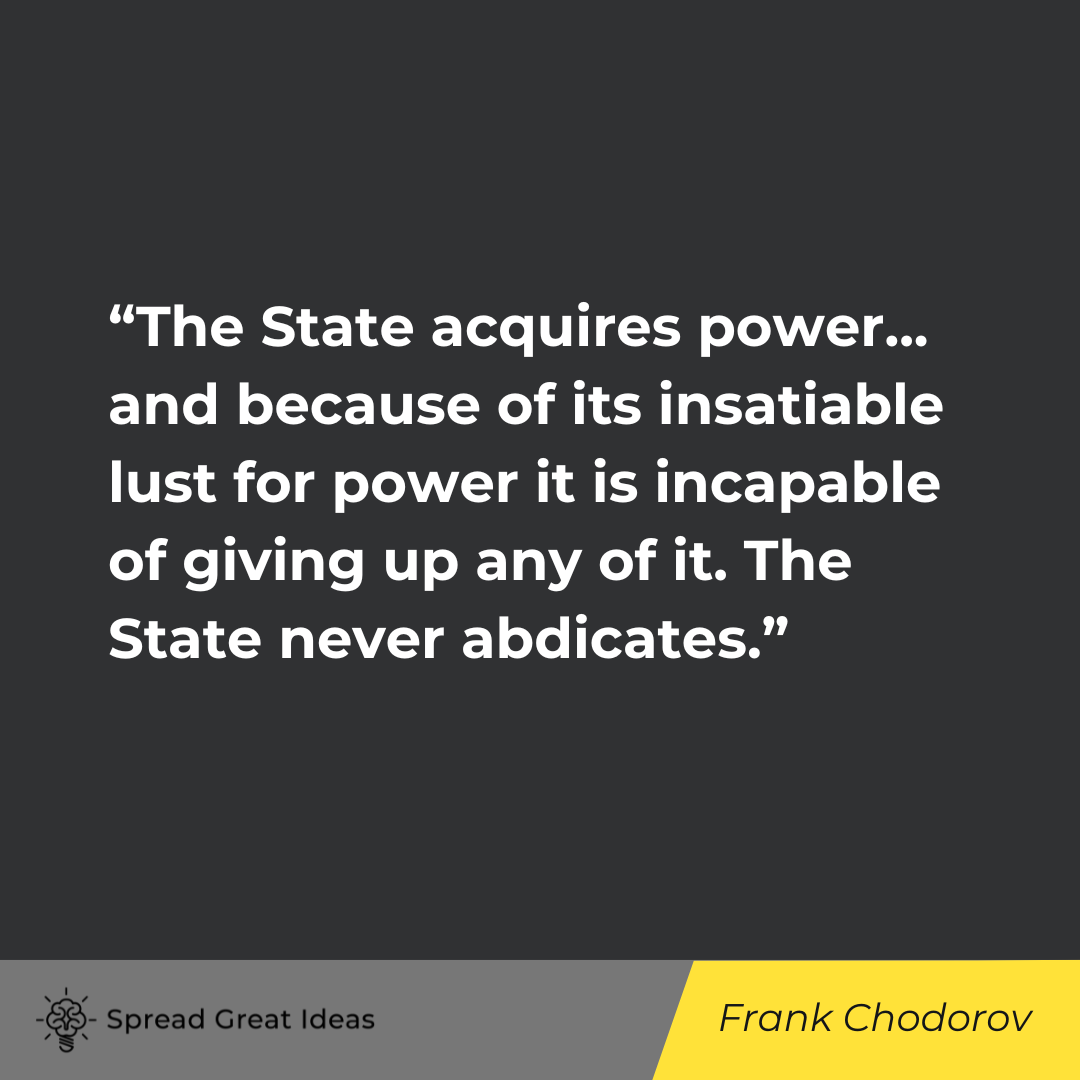
Henry Kissinger
“What political leaders decide, intelligence services tend to seek to justify.”

Quotes About Imperialism and Its Dangers
Noam Chomsky
“Everybody’s worried about stopping terrorism. Well, there’s a really easy way: stop participating in it.”

George Orwell
“When the white man turns tyrant, it is his own freedom that he destroys.”
– George Orwell, Shooting an Elephant

Jeff Grubb
“When all you have is a hammer, then everything looks like a nail.”

H.L. Mencken
“The urge to save humanity is almost always only a false-face for the urge to rule it.”
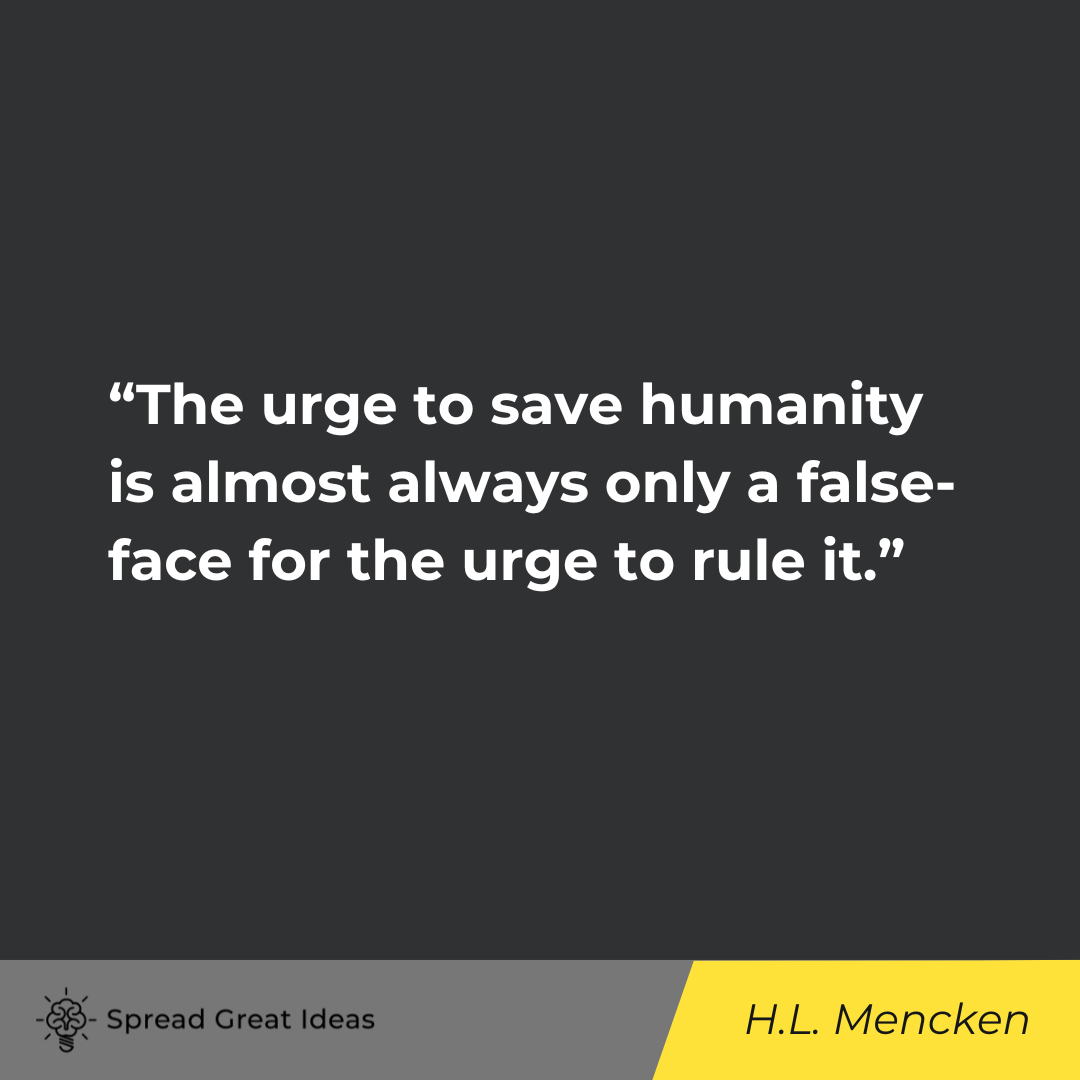
W.E.B. DuBois
“What do nations care about the cost of war, if by spending a few hundred millions in steel and gunpowder they can gain a thousand millions in diamonds and cocoa?”

John Quincy Adams
“America… goes not abroad, in search of monsters to destroy. She is the well-wisher to the freedom and independence of all.”

Winston Churchill
“Americans can be absolutely relied on to do the right thing…after they’ve tried everything else.”

Realpolitik
You’ve probably wondered why the United States spends so much time and money propping up dictatorships, including Communist ones like the Khmer Rouge. The short answer is the political philosophy…